Find Help
More Items From Ergsy search
-
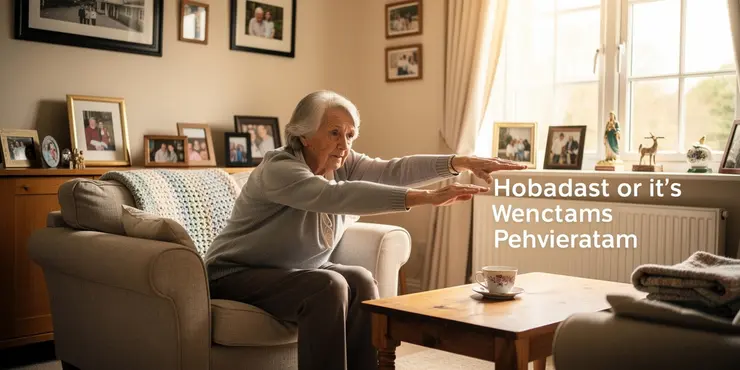
Dorothy's Story (Falls/Chest Infection)
Relevance: 100%
-
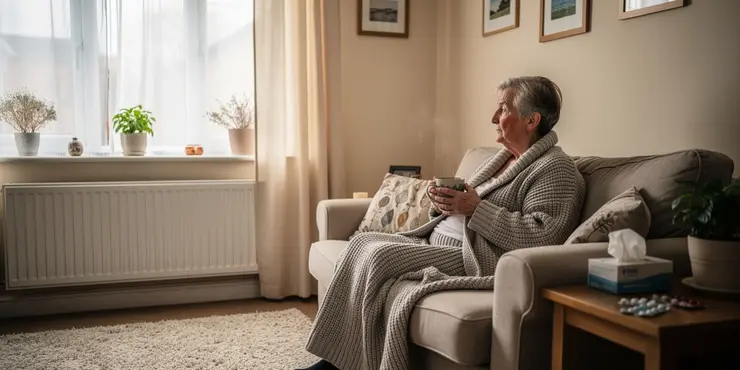
Chest infection: what should I do?
Relevance: 70%
-
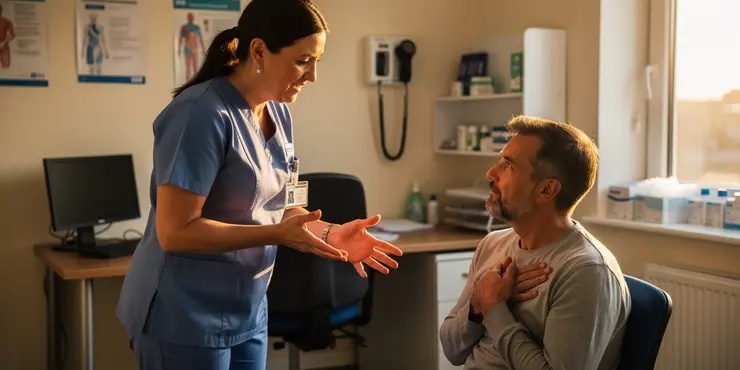
Chest clearance techniques
Relevance: 47%
-
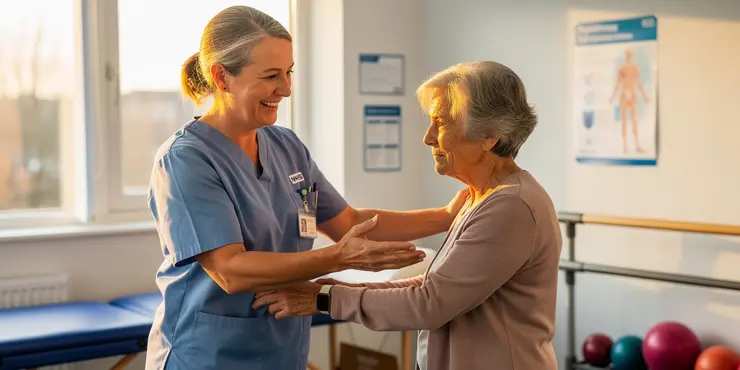
Falls and Falls Prevention
Relevance: 47%
-
Bronchiolitis and chest infections in young children - Prof Steve Turner
Relevance: 45%
-
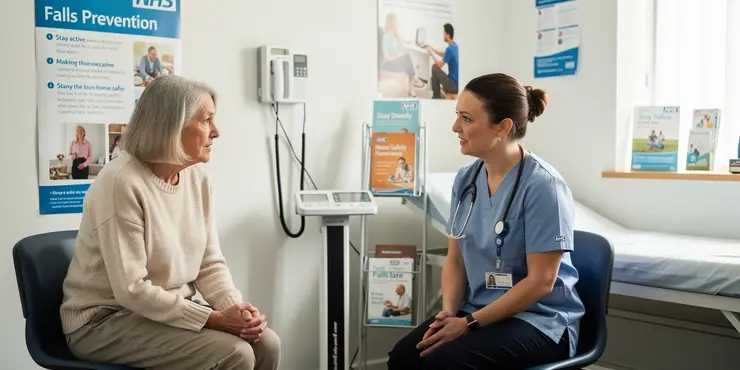
Falls Prevention Podcast
Relevance: 40%
-

Is it possible to have a heart attack without chest pain?
Relevance: 37%
-
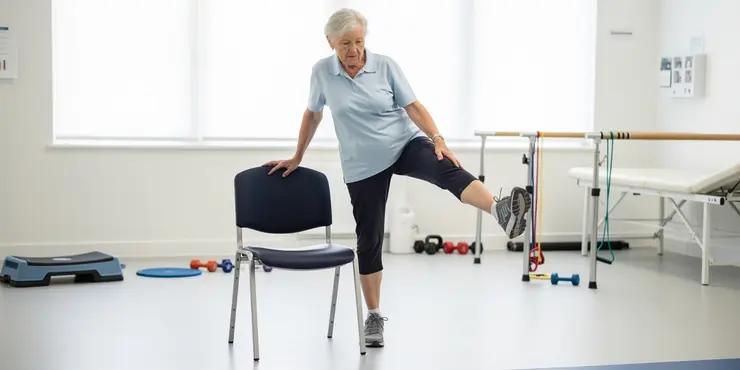
Falls Prevention - strength and balance exercises
Relevance: 35%
-
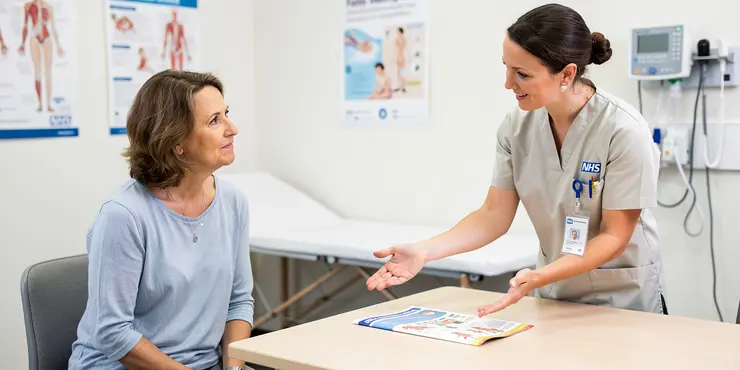
Falls Prevention video for patients attending hospital
Relevance: 34%
-
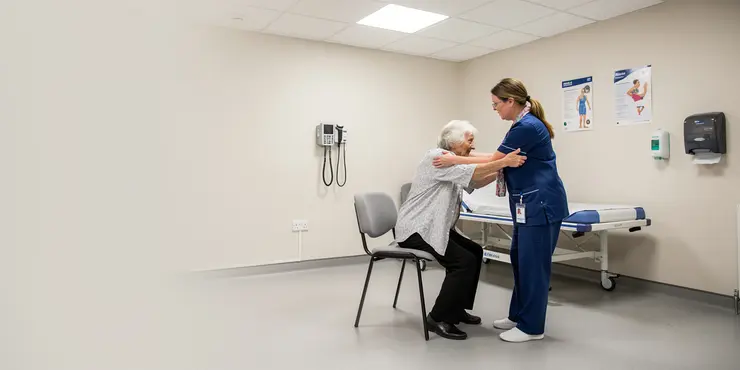
Fallsafe - Put the patient first. Preventing falls in Hospital.
Relevance: 34%
-

UK House Prices Fall for Third Consecutive Month
Relevance: 32%
-

Clearing Your Chest with Breathing Exercises
Relevance: 31%
-
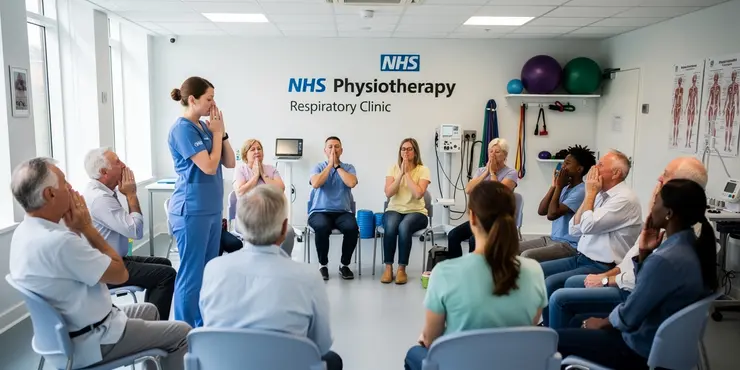
Can air physiotherapy prevent respiratory infections?
Relevance: 30%
-

Sexually transmitted infections STIs
Relevance: 29%
-

Mycobacterium chimaera infection
Relevance: 29%
-
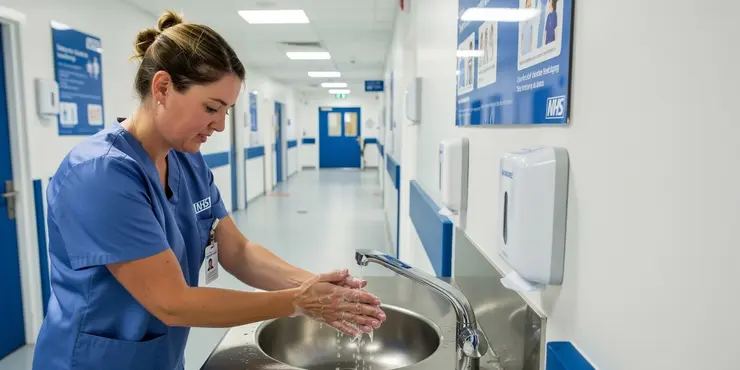
Are E. coli infections contagious?
Relevance: 29%
-
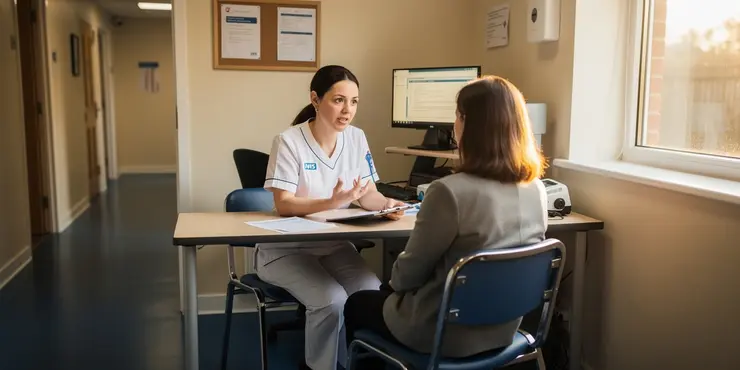
Why do interest rates rise and fall?
Relevance: 28%
-
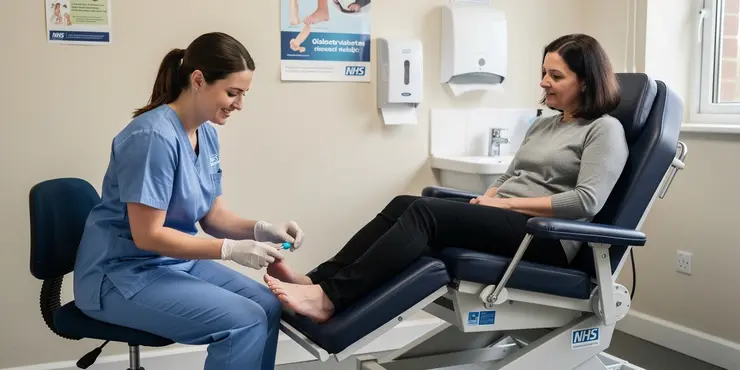
Podiatrist Fungal feet - fungal infection of skin and nails and how to prevent fungal infection in feet
Relevance: 27%
-
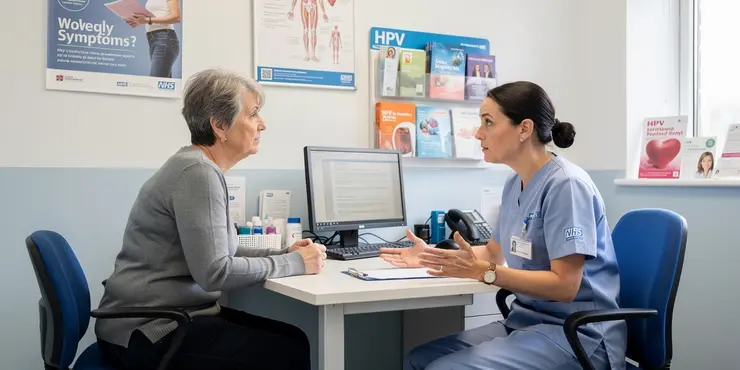
Are there symptoms of an HPV infection?
Relevance: 27%
-
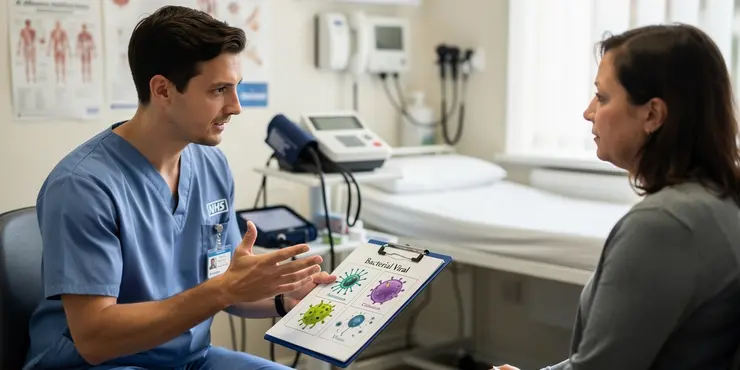
Do antibiotics work on viral infections?
Relevance: 27%
-
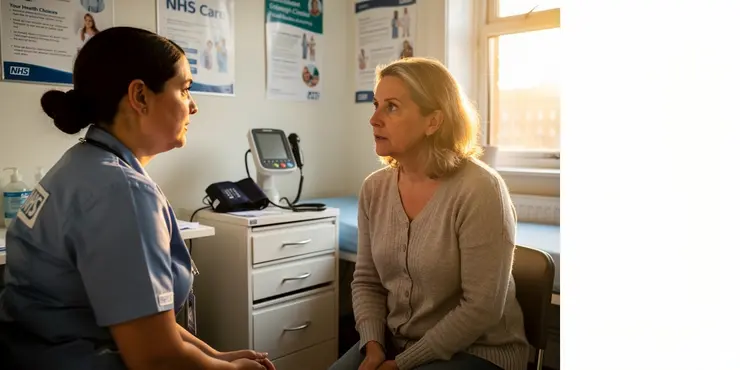
Can E. coli infections be treated?
Relevance: 27%
-
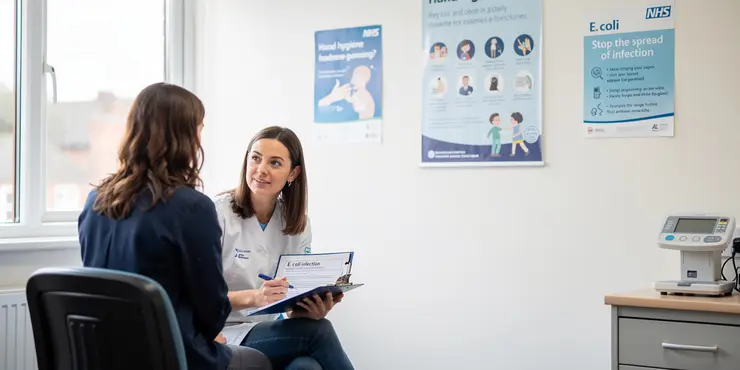
How is E. coli infection diagnosed?
Relevance: 27%
-
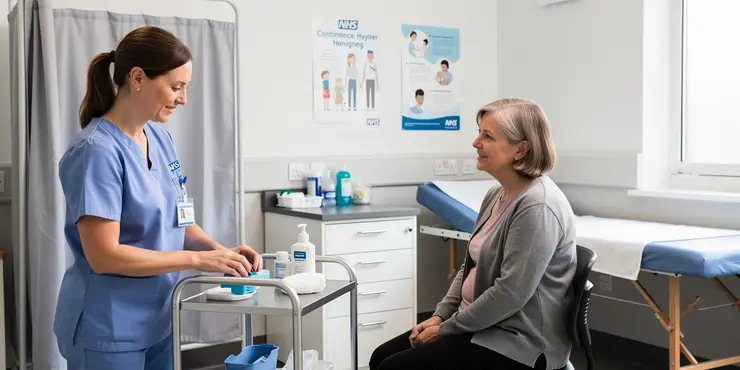
Avoiding infections with urinary incontinence
Relevance: 27%
-

What is Chikungunya virus infection?
Relevance: 26%
-
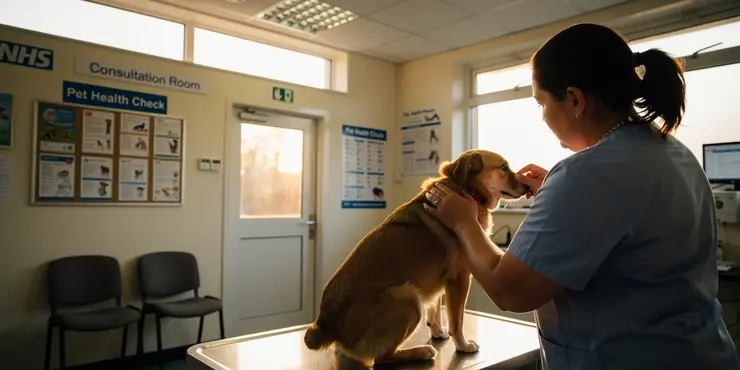
Can animals be infected with H3N2?
Relevance: 26%
-
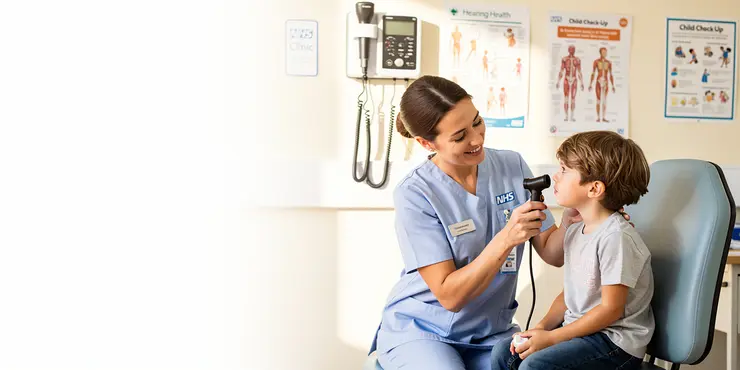
Self care: Treating ear infections
Relevance: 26%
-
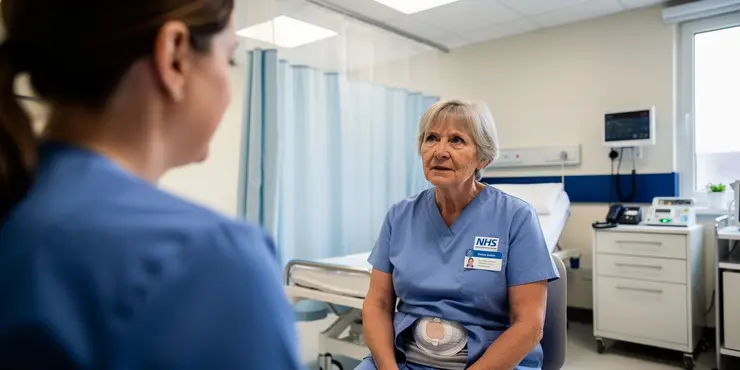
Can a stoma bag cause infections?
Relevance: 26%
-
Can ear infections lead to tinnitus?
Relevance: 26%
-
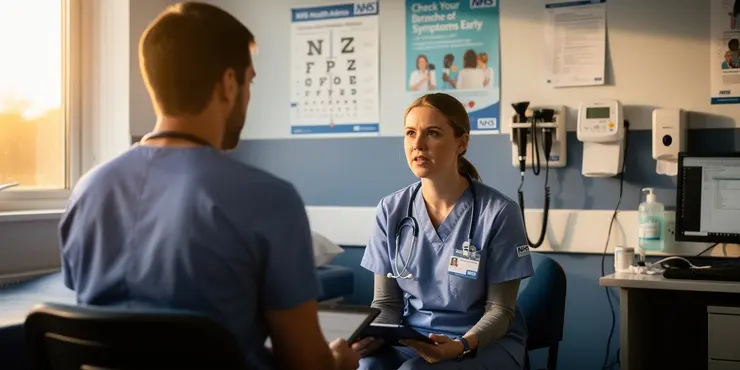
What are the symptoms of Nipah Virus infection?
Relevance: 26%
-
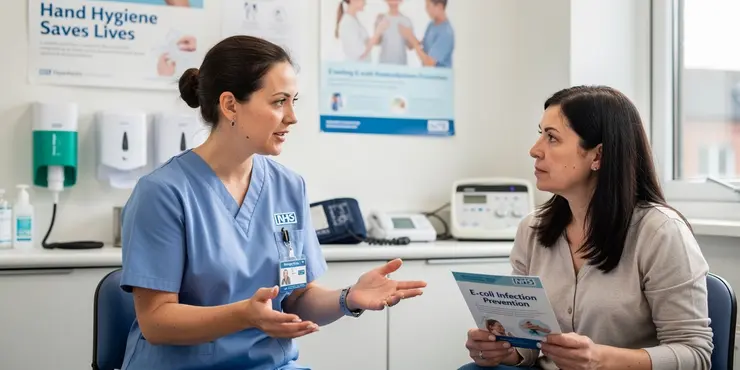
How do people get infected with E. coli?
Relevance: 25%
-

Don't Fall for These 7 Cybersecurity Scams!
Relevance: 25%
-
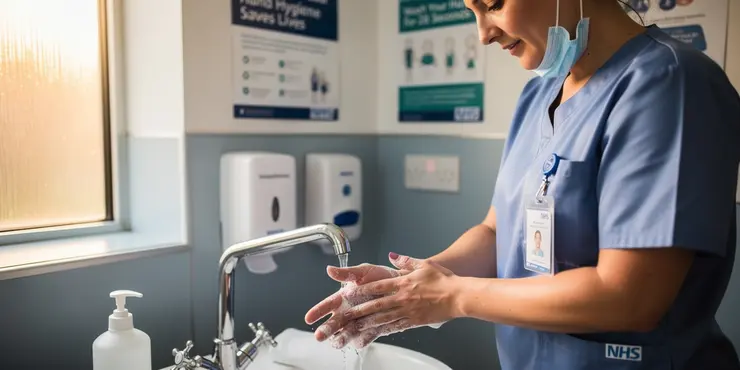
How can E. coli infections be prevented?
Relevance: 25%
-

Who is at risk for severe Chikungunya infection?
Relevance: 25%
-
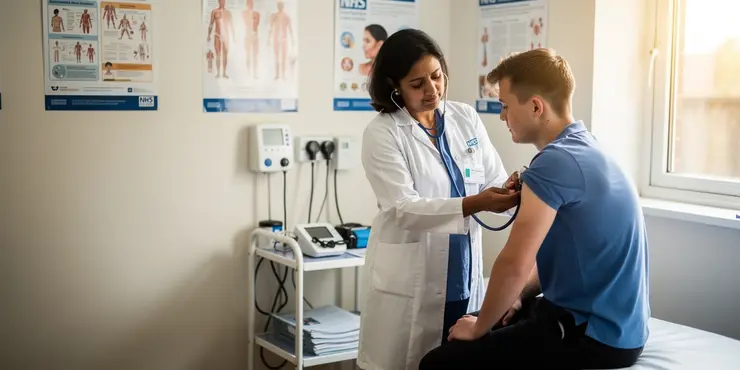
How is Chikungunya virus infection diagnosed?
Relevance: 25%
-
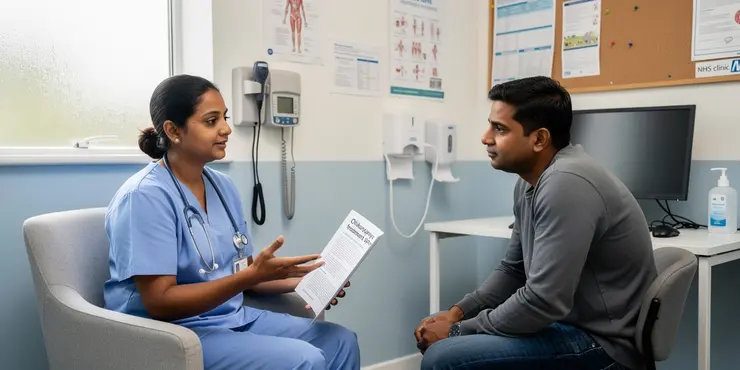
Can Chikungunya virus infection be treated?
Relevance: 25%
-

What populations are at higher risk for E. coli infections?
Relevance: 25%
-
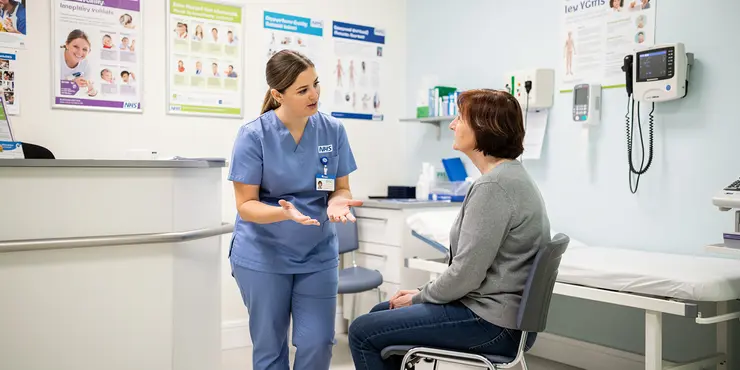
How soon do symptoms appear after infection?
Relevance: 25%
-
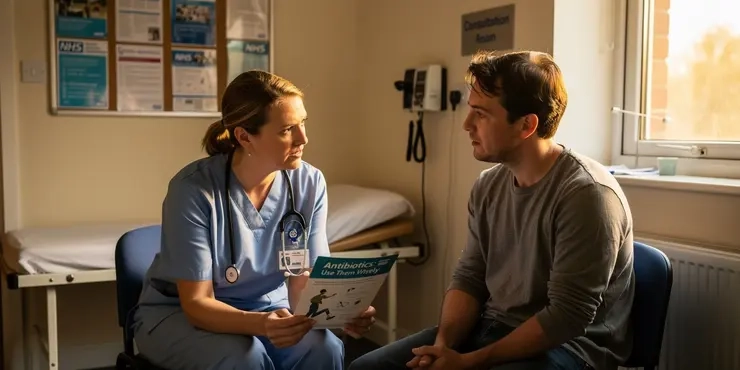
Antibiotics and You: An introduction to antibiotic resistant infections
Relevance: 24%
-
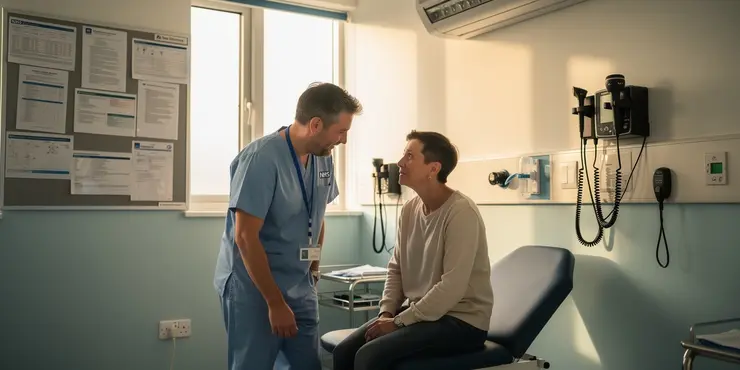
What role do infections play in chronic fatigue syndrome?
Relevance: 24%
-

What are opportunistic infections?
Relevance: 24%
Dorothy's Story: Falls and Chest Infection
The Initial Fall
In the early autumn of 2021, Dorothy, an 82-year-old resident of a quaint village in the United Kingdom, experienced a life-altering fall. While reaching for a book on a high shelf, she lost her balance and tumbled, hurting her hip. This incident marked the beginning of a challenging period for Dorothy and her family, highlighting the hazards that many elderly individuals face daily.
Hospitalisation and Recovery
After being rushed to the local hospital, Dorothy underwent surgery for a fractured hip. The dedicated healthcare team initiated a comprehensive rehabilitation program to assist her recovery. Physical therapy sessions became a daily routine, focusing on restoring her mobility. Despite her determination, the recovery process was slower than anticipated, and Dorothy required continuous medical attention and support from her family and healthcare providers.
The Onset of a Chest Infection
As winter approached, Dorothy developed a persistent cough and fever. These symptoms were soon diagnosed as a chest infection, a common but serious condition among the elderly, especially those with reduced mobility. The infection necessitated a return to the hospital, where she was treated with antibiotics and respiratory therapies. The chest infection exacerbated her existing health issues, significantly complicating her recovery.
Support and Community Care
Upon her discharge, Dorothy's family and the local community rallied to provide the support she needed. Home care services became essential, ensuring she received proper medical care and assistance with daily activities. Community services, like meal delivery and local visiting schemes, played a crucial role in her rehabilitation, providing both physical aid and emotional support.
The Importance of Preventative Measures
Dorothy's story emphasises the importance of preventative measures to avoid falls and their severe consequences. Simple steps, such as removing home hazards, installing handrails, and ensuring regular health check-ups, can significantly reduce the risk. Additionally, staying vigilant about respiratory health, particularly in the colder months, can prevent complications like chest infections.
A Call to Action
Dorothy's experience serves as a poignant reminder to families, healthcare professionals, and the community about the vulnerabilities of the elderly. Enhancing awareness, improving home safety, and ensuring timely medical intervention can make a substantial difference in improving the quality of life for older adults in the United Kingdom.
Dorothy's Story: Falls and Chest Infection
The Initial Fall
In autumn 2021, Dorothy, who is 82 years old, had a bad fall. She lives in a small village in the UK. Dorothy tried to get a book from a high shelf and lost her balance. She fell and hurt her hip. This was very hard for Dorothy and her family. It shows how older people can get hurt easily.
Hospitalisation and Recovery
Dorothy went to the hospital quickly. She needed surgery for her broken hip. Doctors and nurses helped her get better. Dorothy had exercises every day to help her move again. Getting better took a long time. She needed help from her family and doctors all the time.
The Onset of a Chest Infection
When winter came, Dorothy got a bad cough and a fever. The doctor said it was a chest infection. This is common for older people, especially if they can't move much. Dorothy had to go back to the hospital. She needed medicine and help to breathe. This made it harder for Dorothy to get better.
Support and Community Care
When she left the hospital, Dorothy's family and the people in her village helped her a lot. She got care at home. This included help with medicine and daily tasks. People brought meals to her and visited her. This help made her feel better and gave her strength.
The Importance of Preventative Measures
Dorothy's story shows we need to stop falls before they happen. We can make homes safer by moving things that might cause falls, putting up handrails, and going to the doctor often. It is also important to keep lungs healthy, especially in winter, to avoid chest infections.
A Call to Action
Dorothy's experience is a lesson for families, doctors, and the community. We should protect older people and keep them safe. By knowing more, making homes safer, and getting medical help quickly, we can help older people live better lives in the UK.
Frequently Asked Questions
What is the primary focus of Dorothy's Story (Falls/Chest Infection)?
Dorothy's Story highlights the challenges and impacts of falls and chest infections in elderly individuals, with an emphasis on prevention, care, and intervention strategies.
Who is Dorothy?
Dorothy is an elderly individual whose experiences with falls and chest infections are detailed in the story to illustrate common issues faced by older adults in the UK.
Why are falls a significant concern for the elderly?
Falls are a significant concern for the elderly as they can lead to serious injuries, loss of independence, and increased mortality risk.
What are common causes of falls in elderly individuals?
Common causes of falls include poor balance, muscle weakness, vision problems, medications, and hazards within the home environment.
What are the symptoms of a chest infection?
Symptoms of a chest infection can include a persistent cough, shortness of breath, chest pain, fatigue, and fever.
How can chest infections be prevented in the elderly?
Chest infections can be prevented through good hygiene practices, vaccinations, healthy lifestyle choices, and timely medical intervention.
What role do caregivers play in managing falls and chest infections?
Caregivers play a crucial role in assisting with mobility, ensuring a safe environment, monitoring health, and providing support for medical treatments.
What are the potential complications of a chest infection in elderly individuals?
Complications can include pneumonia, respiratory failure, and exacerbation of pre-existing conditions, which can be life-threatening if not properly managed.
How is a chest infection diagnosed?
A chest infection is diagnosed through medical evaluation, which may include physical exams, listening to the chest, and tests such as chest X-rays and sputum cultures.
What treatment options are available for chest infections?
Treatment options include antibiotics for bacterial infections, antiviral medications for viral infections, rest, fluids, and supportive care to relieve symptoms.
How can the risk of falls be reduced at home?
Risks can be reduced by removing trip hazards, installing grab bars and railings, ensuring good lighting, and using non-slip mats.
What should one do if an elderly person falls?
If an elderly person falls, assess for injuries, provide comfort, and seek medical attention if necessary. It's also important to review the fall's cause to prevent future incidents.
Can exercise help in preventing falls and chest infections?
Yes, regular exercise can improve balance, strength, and respiratory health, which are crucial in preventing falls and chest infections.
What are signs that an elderly person may be at risk of a fall?
Signs include difficulty walking, frequent trips or slips, unsteady gait, and a history of previous falls.
How important is timely medical intervention in treating chest infections in the elderly?
Timely medical intervention is critical as it prevents complications, ensures appropriate treatment, and improves the chances of a full recovery.
What is Dorothy's Story About?
This story is about Dorothy. It talks about when she fell or got a chest infection. Let's find out more about what happened to her.
If you want extra help, you can:
- Ask someone to read it with you.
- Use a dictionary to look up words you don't understand.
- Take breaks if you find it hard to read all at once.
This story is about Dorothy. It talks about how falling down and getting chest infections can be hard for older people. It also tells us some ways to help stop these problems and how to take care of older people better.
Who is Dorothy?
Who is Dorothy? This means we want to know about a person named Dorothy. Think about who she is and what she does. To help, you could look at pictures or listen to stories about Dorothy.
Dorothy is an older person. Her story talks about how she sometimes falls and gets chest infections. This is to help people learn about problems many older people in the UK have.
Why is falling a big worry for older people?
Falls can be very dangerous for older people. When they fall, they might get hurt badly. Falls can also make them depend more on others and can even lead to more serious health problems.
Why do older people fall down?
People might fall because of:
- Bad balance
- Weak muscles
- Seeing problems
- Medicines
- Things that make homes unsafe
To help understand the text better, try reading one idea at a time. Use a ruler or your finger to keep track of lines.
What happens when you have a chest infection?
A chest infection can make you feel sick. Here are some signs:
- You might cough a lot.
- Your chest could feel painful or tight.
- You might have a fever, which means feeling hot or cold and shivery.
- You could feel really tired and sleepy.
- You might have trouble breathing.
If you have some of these signs, it can help to:
- Drink lots of water.
- Get rest and sleep.
- See a doctor if you feel very sick.
Ask someone you trust to help you if you are worried.
Signs of a chest infection can be:
- Cough that won’t go away
- Hard to breathe
- Sore feeling in the chest
- Feeling very tired
- High temperature
You can use pictures to help understand these symptoms. If you feel these signs, you might want to use a breathing exercise or talk to a doctor for help.
How can older people stop chest infections?
You can stop chest infections by keeping clean, getting vaccines, living healthy, and seeing a doctor when needed.
How do caregivers help prevent falls and chest infections?
Caregivers are people who help others stay safe and healthy.
They can make sure the home is safe to stop falls. For example, they might move things you can trip on or help you walk.
They also watch out for signs of chest infections, like coughing or trouble breathing.
Caregivers can remind you to wash your hands and stay away from sick people.
If someone feels sick or hurt, caregivers can get help from doctors or nurses.
Talking and listening are good ways for caregivers to know what you need.
Some helpful tools for caregivers are checklists and calendars to track health and safety.
Helpers are very important. They help people move around, keep things safe, watch health, and help with medicines.
What problems can an older person have if they get a chest infection?
Sometimes problems can happen, like getting very sick with pneumonia, having trouble breathing, or making other health problems worse. These can be very serious and even life-threatening if not taken care of properly.
How do doctors find out if you have a chest infection?
Doctors find out if you have a chest infection by checking how you feel. They might:
- Listen to your chest with a stethoscope.
- Take a picture of your chest with a special machine called a chest X-ray.
- Take a little bit of spit from your mouth to test it. This is called a sputum culture.
These tests help doctors know if you need medicine. A parent, friend, or carer can help you understand what the doctor says. If you need help reading, you can use a tool like a text-to-speech app that reads the words out loud for you.
What can help if you have a chest infection?
If you have a chest infection, there are things that can help you feel better.
- Go to the doctor: The doctor can tell you what medicine you might need.
- Rest: Get plenty of sleep to help your body fight the infection.
- Drink water: Drinking lots of water can help you stay healthy.
- Keep warm: Staying warm can help your body heal.
- Use a hot drink: A warm drink can soothe your throat.
- Ask for help: Talk to someone if you feel worried. It's okay to ask for help.
These things can help you feel better and get well sooner. If you feel very sick, tell an adult or see a doctor.
Treatment options include:
- Antibiotics. These help if you have a bacterial infection.
- Antiviral medicines. These help if you have a virus.
- Rest. Take it easy and get lots of sleep.
- Fluids. Drink plenty of water and juice.
- Care for symptoms. Use things like warm soup and cozy blankets to feel better.
How can we make home safer to stop falling?
Here are some easy things you can do to make home safer:
- Keep the floors clear of toys or things you might trip on.
- Use night lights to see better when it's dark.
- Put non-slip mats in the bathroom and kitchen to stop slipping.
- Wear shoes with good grip, not slippery socks.
- Hold onto handrails when using stairs.
Try using these tools or asking someone for help:
- Walking stick or walker if you need extra support.
- Ask family or a friend to help organize and keep things tidy.
We can make places safer by doing a few things. Take away things people might trip over. Put up grab bars and railings to hold onto. Make sure there is good light to see better. Use mats that do not slip.
What to Do if an Older Person Falls?
If an older person falls, stay calm and help them. Here are some simple steps you can follow:
- Check if they are hurt. Ask them if they feel pain anywhere.
- If they are hurt, call for help. You can phone a doctor or an ambulance.
- If they are not hurt, help them get up slowly and safely. Use a chair if they need support.
- Stay with them until they feel okay.
Tools that might help:
- A phone to call for help if needed.
- A chair for support when they stand up.
If an older person falls down, check if they are hurt. Make them feel safe and call the doctor if you need to. After that, find out why they fell so it doesn't happen again.
Can exercise stop falls and chest infections?
Exercise is good for your body. Moving your body can make you stronger and healthier.
Strong muscles can help you keep your balance. This means you might not fall over as much.
Exercise also helps your lungs stay healthy. This can help stop chest infections.
To stay safe, try easy exercises like walking or gentle stretching. You can ask a friend or family member to join you.
Using a video or app can help make exercising fun. Always listen to your body and rest if you need to.
Yes, exercising often can help you stay steady, get stronger, and breathe better. This can stop you from falling down and catching chest infections.
What are signs that an older person might fall down?
Let’s talk about signs that an older person might fall down. Here are some things to look for:
- Moving Slowly: If an older person moves slowly, they might fall.
- Trouble Walking: Look for wobbly walking or trouble with steps.
- Holding Onto Things: An older person who holds onto furniture or walls might be at risk.
- Past Falls: If they have fallen before, they might fall again.
- Feeling Dizzy: If they feel dizzy, they could lose balance and fall.
To help, you can:
- Make their home safe by removing things they can trip over.
- Encourage using a stick or walker if needed.
- Ask a doctor for exercises that make them stronger.
Look out for signs like having trouble walking, tripping or slipping a lot, walking without balance, and falling before.
Why is it important to treat chest infections in older people quickly?
Chest infections can make people very sick, especially if they are older. It is important to see a doctor as soon as possible. This can help them get better faster.
Use simple words and short sentences when explaining to someone. Watching videos or using pictures can also help them understand.
Getting help from a doctor quickly is very important. It stops problems from getting worse, helps you get the right treatment, and makes it more likely that you will get better.
Useful Links
This website offers general information and is not a substitute for professional advice.
Always seek guidance from qualified professionals.
If you have any medical concerns or need urgent help, contact a healthcare professional or emergency services immediately.
Some of this content was generated with AI assistance. We’ve done our best to keep it accurate, helpful, and human-friendly.
- Ergsy carfully checks the information in the videos we provide here.
- Videos shown by Youtube after a video has completed, have NOT been reviewed by ERGSY.
- To view, click the arrow in centre of video.
- Most of the videos you find here will have subtitles and/or closed captions available.
- You may need to turn these on, and choose your preferred language.
- Go to the video you'd like to watch.
- If closed captions (CC) are available, settings will be visible on the bottom right of the video player.
- To turn on Captions, click settings .
- To turn off Captions, click settings again.
More Items From Ergsy search
-

Dorothy's Story (Falls/Chest Infection)
Relevance: 100%
-

Chest infection: what should I do?
Relevance: 70%
-

Chest clearance techniques
Relevance: 47%
-

Falls and Falls Prevention
Relevance: 47%
-
Bronchiolitis and chest infections in young children - Prof Steve Turner
Relevance: 45%
-

Falls Prevention Podcast
Relevance: 40%
-

Is it possible to have a heart attack without chest pain?
Relevance: 37%
-

Falls Prevention - strength and balance exercises
Relevance: 35%
-

Falls Prevention video for patients attending hospital
Relevance: 34%
-

Fallsafe - Put the patient first. Preventing falls in Hospital.
Relevance: 34%
-

UK House Prices Fall for Third Consecutive Month
Relevance: 32%
-

Clearing Your Chest with Breathing Exercises
Relevance: 31%
-

Can air physiotherapy prevent respiratory infections?
Relevance: 30%
-

Sexually transmitted infections STIs
Relevance: 29%
-

Mycobacterium chimaera infection
Relevance: 29%
-

Are E. coli infections contagious?
Relevance: 29%
-

Why do interest rates rise and fall?
Relevance: 28%
-

Podiatrist Fungal feet - fungal infection of skin and nails and how to prevent fungal infection in feet
Relevance: 27%
-

Are there symptoms of an HPV infection?
Relevance: 27%
-

Do antibiotics work on viral infections?
Relevance: 27%
-

Can E. coli infections be treated?
Relevance: 27%
-

How is E. coli infection diagnosed?
Relevance: 27%
-

Avoiding infections with urinary incontinence
Relevance: 27%
-

What is Chikungunya virus infection?
Relevance: 26%
-

Can animals be infected with H3N2?
Relevance: 26%
-

Self care: Treating ear infections
Relevance: 26%
-

Can a stoma bag cause infections?
Relevance: 26%
-
Can ear infections lead to tinnitus?
Relevance: 26%
-

What are the symptoms of Nipah Virus infection?
Relevance: 26%
-

How do people get infected with E. coli?
Relevance: 25%
-

Don't Fall for These 7 Cybersecurity Scams!
Relevance: 25%
-

How can E. coli infections be prevented?
Relevance: 25%
-

Who is at risk for severe Chikungunya infection?
Relevance: 25%
-

How is Chikungunya virus infection diagnosed?
Relevance: 25%
-

Can Chikungunya virus infection be treated?
Relevance: 25%
-

What populations are at higher risk for E. coli infections?
Relevance: 25%
-

How soon do symptoms appear after infection?
Relevance: 25%
-

Antibiotics and You: An introduction to antibiotic resistant infections
Relevance: 24%
-

What role do infections play in chronic fatigue syndrome?
Relevance: 24%
-

What are opportunistic infections?
Relevance: 24%


